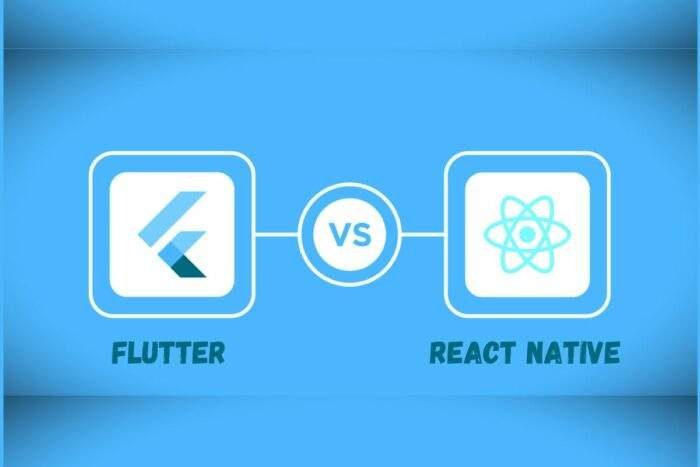Flutter vs. Native: Which One Should You Choose for Your Next App Project?

Indeed, Flutter should be your choice if you need cost-savvy and speedy app development. It helps in creating apps for multiple platforms using a single codebase. So, it is perfect for startup businesses seeking to launch their app in less time and cost.
On the other hand, if you are seeking a unique look and feel, top-notch performance, and native tools, then choose native app development. Moreover, native apps enhance the user experience and meet the platform’s design guidelines.
Let us compare Flutter vs traditional native mobile app development. But both provide better user experience and high scalability. Simultaneously, Flutter makes the development much faster and helps get quick solutions.
Flutter vs Native: Which One Should You Choose for Your Next App Project?
What are Native Technologies?
Native technologies involve developing dedicated apps for different mobile app platforms such as Android, iOS, and Windows. Hence, it uses OD device features like Accelerometer, compass, GPS, etc. If you want to install such apps to a device, you will need stores such as Google Play and App Store.
What is Flutter?
It is an open-source framework developed with languages known as Dart by Google. Flutter delivers better accessibility to establish the overall expressive and simple UI with native performance.
It is well addressed and enhanced with a UI toolkit to create cross-platform apps using a single code base. Apart from that, Flutter is supported by a big community of developers, and creating apps will be challenging.
1. Use Cases
Use Cases of Native:
- Advanced UI
- VR applications
- Watch and Wallets
- IoT apps to connect with TV
- On-demand apps
- Rich-animations-triggered apps
- Apps with complex
- AR applications
- Standalone native applications
- Travel based applications
- Gaming apps
- GPS-centric apps
Use Cases of Flutter:
- Flexible UI
- MVP mobile applications
- material design Apps
- Better performance apps with a Skia rendering engine
- Apps run on OS-level features
- Advanced OS plugins
- Reactivate apps with huge data integration
2. Cost and speed development:
Native:
While creating mobile apps using native technologies differs in budget and scaling ability. Designing small or large-scale apps is easier with the help of native technologies to meet the needs of both Android and iOS users. Therefore, you must hire React native developers skilled in all native technologies.
Flutter:
It follows the WORA approach, such as Write Once and Run Anywhere. Creating apps with Flutter helps developers write code only once and use it for several platforms. In this way, Flutter decreases the time and cost of mobile app development.
It allows developers to write code once and is easier to understand, even for beginners. The training cost is economical and reduces the need to hire multiple experienced developers.
3. Code maintenance: native technologies:
Native:
To remain the native software is time-consuming and more expensive as you must program the app for the dedicated platform. It tends that developers need to create separate code, find the bugs, and find solutions for each platform. So, maintenance costs and time are increased with the native technologies.
Flutter:
Handling such an app is easy as you maintain one codebase for different platforms. Moreover, spotting and solving the bugs in less time and effort is easier. So, when it comes to code maintenance, Flutter wins the race.
4. Common features and integration:
Native:
As stated above, Flutter has several plugins, a strong community, and quality documentation to assist rise from any hurdle when integrating it with Android and iOS. But native technologies help you create what you need for the platform. So, native development better fits here.
Flutter:
Native technologies like Kotlin and Swift provide seamless integration with platform-specific features. Such features include the camera, location, Bluetooth, etc. Integration of several unique features of three-party libraries is relatively easy with Flutter.
At the same time, it is less complex than Flutter, as it often needs plugins to add these features. Flutter has a large number of plugins. You are fortunate if you find a plugin that can get you what you need. Otherwise, you will be required to create a new plugin per your project needs.
5. App Performance:
Native:
Indeed, native technologies offer the best performance and help businesses achieve maximum output. Native apps are strongly coupled with the hardware due to vendors’ direct efforts. This is the only technology that can help in getting the same results.
Flutter:
Due to Flutter’s engine, Flutter apps are larger, so it may create space issues with some devices. Measurements and tests have also analyzed that Flutter apps consume more energy and are slower than native apps. But, it is not valid in all cases. Usually, users can’t find the difference between Flutter and native apps. Because Flutter apps still offer the best-in-class and high-end user experience if the app is designed perfectly.
6. Best Cases:
In What Case Native Tools Are Best
Indeed, Flutter is one of the best tools; however, in some cases, native tools work better. Let’s check some of the issues where the native stack works better:
- Complex animations
- Location-centric apps
- Artificial intelligence
- Augmented reality/Virtual reality
- IoT apps, for example, Bluetooth
In What Case Flutter Is the Best
Flutter is a widely used cross-platform app development technology. It can be perfect in both B2B and B2C sectors for proprietary and publicly available enterprise application development. However, it is good for startups creating PoCs and MVPs.
Flutter’s strong capability to develop the best user interface, wide developers’ community, reduced development cost, shorter development cycle, and strong documentation are the top points that attract developers and businesses towards it.
Flutter is the best in several business domains, including:
- Logistics
- Finance
- Education
- Mass media
- Transportation
- Medicine
App Types:
Native:
If you need high-end UI/UX experience apps such as retail shopping or gaming apps, Native apps may give better results.
Flutter:
Choose Flutter if you have less time to code and need cross-platform apps.
Conclusion:
Reading the above words, you can know what to choose for your project, either native technologies or Flutter. Both technologies have pros and cons, but Flutter is the best choice if you need cross-platform technologies and faster development.
On the other hand, Native technologies provide native performance and platform-dedicated features. Ultimately, the selection between both relies on the development needs and goals. So, it is good to discuss with expert developers to make the right choice.







